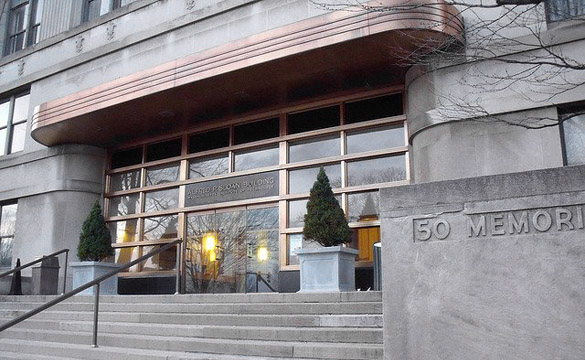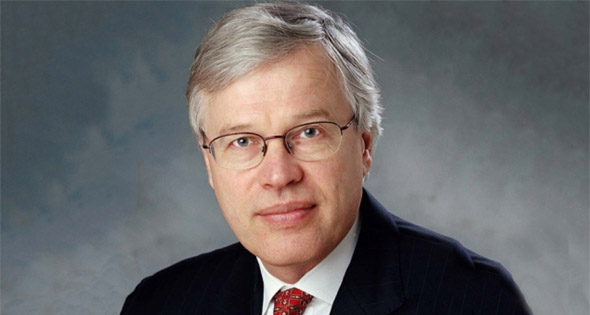“If there is any surprise about Bengt Holmström's Nobel Prize, it is the timing — that it has taken the committee so long to recognize his towering contributions,” said Daron Acemoglu, the Elizabeth and James Killian Professor of Economics, and a colleague of Holmström’s in the MIT Department of Economics. “This is a testament to the influence of Bengt's work on contracts, incentive theory and the internal organization of the firm, which has fundamentally reshaped not just the way we think about these topics but the entire field of economics.”
“Contract theory is a pathbreaking approach to a whole host of fields in economics and in law. Almost all human interactions in economics can be characterized as contractual – either implicit or explicit,” Stephen Ross said. “Bengt and Oliver built on this intuitive insight and developed a set of models and results that allow us to clearly understand their economics from the perspective of the incentives of agents and the information they possess.” The theories developed by Holmström and Hart, Ross added, have provided a framework that enables an understanding of a broad swath of problems, from labor market interactions to the relationship between owners and enterprises to the role of control rights.
A founding father of contract theory
Professor of finance David Thesmar, who joined the MIT Sloan faculty from HEC Paris this year, has studied Holmström’s research for years, and said: “I have read, taught, and done research on many of Bengt’s papers, as he is a founding father of contract theory. His insights on relative performance evaluation, the notion of liquidity, and career concerns are essential to our understanding of organizations and finance.”
“Holmstrom's pathbreaking work created some of the most widely-used tools in every economist's toolkit,” said Jim Poterba, the Mitsui Professor of Economics in the Department of Economics, and president of the National Bureau of Economic Research. “His insights on incentive theory and contract design informs topics that range from the creation of pay structures for corporate managers, to the design of health insurance exchanges, to the sharing of risks between banks and other large financial institutions. Bengt and Oliver Hart have not only helped us to better understand incentives and institutions, but also to design better ones.”

The Morris and Sophie Chang Building (E52), home of the MIT Department of Economics
“Holmstrom's pathbreaking work created some of the most widely-used tools in every economist's toolkit. His insights on incentive theory and contract design informs topics that range from the creation of pay structures for corporate managers, to the design of health insurance exchanges, to the sharing of risks between banks and other large financial institutions. Bengt and Oliver Hart have not only helped us to better understand incentives and institutions, but also to design better ones.”
— Jim Poterba, Mitsui Professor of Economics in the Department of Economics, and president of the National Bureau of Economic Research
MIT Sloan professor of applied economics Robert Gibbons, who has worked closely with Holmström for years, said his work is “vitally important” for both economics and management. “I think of contract theory as analyzing how to govern collaboration — how to use all the available instruments to help a fixed set of people collaborate as well as possible. Applications range from small work groups and partnerships, to tussles between divisions of corporations, to joint ventures and other interactions between firms, to public-private partnerships between firms and governments, to interactions between countries or other autonomous entities,” Gibbons said. “I'm delighted that economics has added these issues to its agenda, to complement the analysis of markets. Bengt's decades of award-winning work played a key role in getting this started.”
“It's been tremendous to have been Bengt's friend and colleague for the past 22 years,” said Glenn Ellison, the Gregory K. Palm (1970) Professor of Economics at MIT and current head of the Department of Economics. “He is a remarkable economist. And he has also been a remarkable contributor to the department in so many other ways: He was a dedicated department head; he taught innovative graduate and undergraduate classes; he worked with a number of our top PhD students; he cared greatly about his undergraduate advisees. The prize could not be more deserved and the MIT economics department could not be happier for Bengt.”
“This prize is a testament to the influence of Bengt's work on contracts, incentive theory and the internal organization of the firm, which has fundamentally reshaped not just the way we think about these topics but the entire field of economics.”
— Daron Acemoglu, Elizabeth and James Killian Professor of Economics, MIT Department of Economics
Applying contract theory to practice
MIT Sloan Professor Scott Stern said Holmström’s “clear and deep understanding of how to bring economic theory to bear on the core challenges facing managers has been an inspiration and a guide.”
“Consider the challenge of motivating ‘innovation,’” Stern said. “How can you tell when your worker is someone [who] is working hard at innovation? This is, needless to say, not an easy problem. Bengt provided the foundational stepping stones that inform our teaching and research in this area. In a series of classic papers, Bengt highlighted how difficult it is to provide incentives that actually encourage the behavior that managers are hoping to encourage. For example, if you are constantly monitoring the progress of innovators, you are likely to end up with a lot of short-term deliverables but few home runs.”
A focus on research
Although the accolades and the Nobel Prize are gratifying, Holmström said in a phone interview Monday that he is looking forward to getting back to his research.
“I don’t have any intention to use this as a platform for throwing myself into a public debate. There are various styles of reacting to [winning] the Nobel Prize. Some people become experts on everything when they get the prize, and others continue to be themselves, so to speak. I think I will be more of the latter,” Holmström said.
MIT Sloan Professor Robert C. Merton, who won the Nobel Memorial Prize in Economic Sciences along with Myron Scholes in 1997, said he was “extraordinarily excited” Holmström won the Prize.
Acemoglu agreed. “I honestly cannot think of a more well-deserved prize," he said. "And the icing on the cake is that it gives the lie to the saying 'nice guys finish last.’ Bengt, who is one of the kindest, most considerate and selfless individuals you would meet in academia, has finished first as he richly deserves.”
Suggested links
MIT Sloan School of Management
Story prepared by
Amy MacMillan Bankson of MIT Sloan Communications
and MIT SHASS Communications

